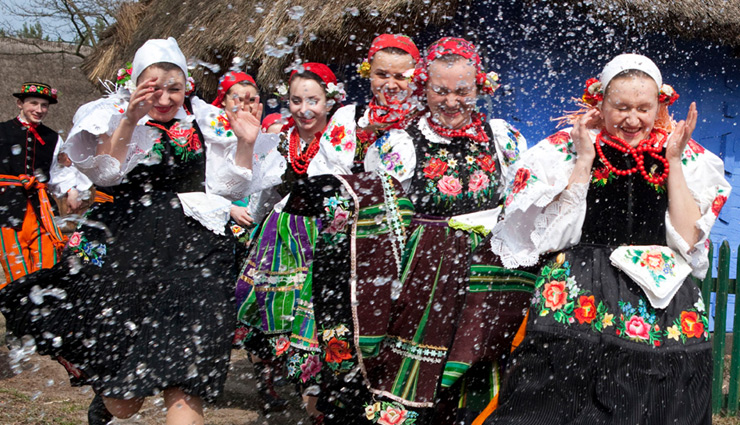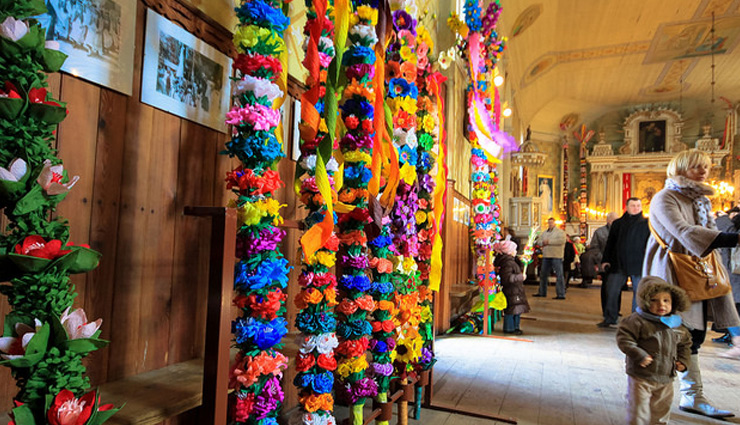
* Fat Thursday
On the final Thursday before Lent each year, Polish people celebrate Tłusty Czwartek (Fat Thursday). This is a final chance to overindulge in tasty treats that shouldn’t really be consumed during the Christian Lent festival. On this day, all over Poland, people eat their favourite sweet and sugary snacks. Normally the Polish eat Pączki on this day. Pączki are Polish-style doughnuts normally filled with rose or raspberry jam. Another popular treat that the Polish love to eat on Fat Thursday are Faworki, which are pieces of fried pastry dipped in a sugary coating.

On the first day of spring, many rural parts of Poland still celebrate the drowning of Marzanna. Marzanna was a Slavic goddess associated with death, cold winters and nature. So these days, an effigy of the so-called Marzanna is constructed by locals as part of a sacrifice. This effigy is usually made from straw, with white clothing and some colour added. Onlookers normally watch from a bridge or from the riverside, as the Marzanna doll is dropped into the river and floats downstream. To ensure you avoid bad luck, you must be careful not to touch the Marzanna doll while she is in the water. On the way back, you must also not look back towards where the Marzanna doll is, as this is rumoured to cause illness or disease.
* Twelve Dishes on Christmas Eve
If you happen to be in Poland over the Christmas period, you will begin to realise how religious a country it truly is. From church services to family get-togethers to days where businesses are completely shut, this is a country proud of its former Pope, John Paul II. On Christmas Eve, there is a tradition known as Wigilia. This involves twelves dishes being served (one to represent every disciple) and shared by the family. None of the dishes can contain meat, none can be the same, and some of the dishes are cooked only on this day. Many families also leave out an extra plate on Christmas Eve, for the ‘unexpected visitor’ that might arrive. Although there is no meat, Polish fish dishes often make up part of Wigilia.
One of the crazier days on the Polish calendar is Wet Monday, known as Śmigus Dyngus. On this day, boys soak girls with water. It is an age-old tradition that has existed for generations. On this particular morning, boys all over the country sneak into the bedrooms of the girls and wake them up by pouring water on them. The theme continues throughout the day, as buckets are launched at girls walking through the streets. There are special water fight events also organised on this day. The girls who end up the wettest are said to be the ones who will get married first. The following day offers the chance for revenge, as the girls use the Tuesday to soak the boys.
* Initials on doors
Visit any traditional Polish housing block in early January, and as you pass the entrance doors to the flats you will probably notice that some of them have letters on them. These letters are usually written in chalk, and take the form of something like “K+M+B+2018”. While at first this might seem confusing or that some maintenance work might be going on, this is a long-time tradition in Poland. The writing has been written by the family who lives inside. The initials and the year are supposed to represent the three kings who visited Jesus with gifts – Caspar, Melchior and Balthazar. They are believed to protect the house and family from disease, illness and bad luck during the year. These initials should remain above the door for the rest of the year, unless removed by accident or naturally.